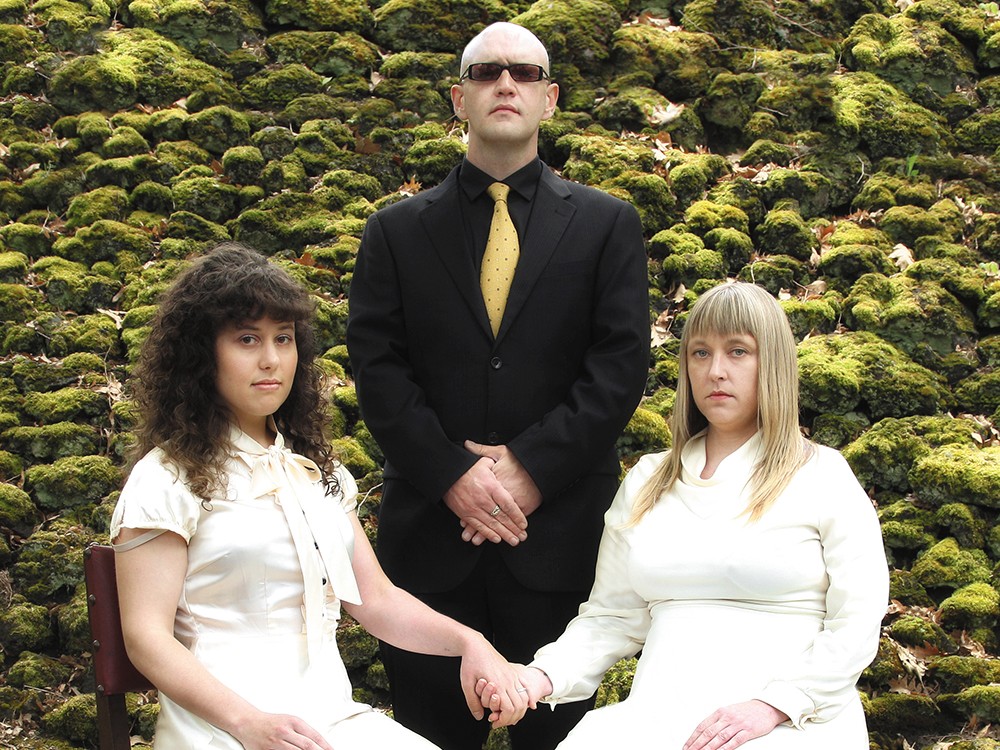After six minutes of guitars moving at breakneck speed, drums clattering to keep up and a bassline building a brick wall of low notes behind it all, Eight Bells suddenly shines a light into its own darkness.
The band slows down, making room for a shaky female voice — a siren in the fog — to break through. It’s jarring and beautiful, and it happens precisely at the moment when it seems like you’ve got this band pegged.
When bassist Haley Westeiner starts singing — and for a few seconds, screaming — it’s as if the band is staking its claim and showing its intentions. Westeiner’s voice comes out of nowhere and is gone before you know it. She grabs you, makes you stop and stand at attention, waiting for her next command to return. But it doesn’t.
Across Eight Bells’ debut The Captain’s Daughter, a dark and complicated four-song record that tells a story even some of the most vocal bands can’t, the trio only allows itself to speak — vocally, at least — for less than a minute.
Over the phone, guitarist Melynda Jackson is frank about the band’s silence. She’s sick of talking.
“I talk all day long. I listen to people talk all the time. People are always talking,” Jackson says. She’s just gotten off work, where she says she spends a lot of her day on the phone. “Sometimes I feel like I talk a lot. I talk and talk and talk, but I never get the relief I get that I get expressing something with sound.”
Jackson says that over her long career of playing psychedelic music — first in San Francisco’s SubArachnoid Space and now in Eight Bells — she has begun to think she can express her thoughts and feelings more effectively through instrumental music, that her guitar can do the talking for her.
“Words are a cultural entrapment, really, to me. And there are some feelings that don’t really have words,” she says, “For me, music is really emotional and I can’t always explain that feeling. Sound has always been more of a direct line of what you feel and what you emote.
Jackson believes bands can undervalue their own sound with a frontman or singer. And with instrumental music, the listener engages more deeply with what they’re hearing.
“I like instrumental music. Always — as a kid, I always liked the instrumental songs the best,” she says. “It takes a really special lyricist for me to be really moved by what they say ... I think a lot of people want to be told what to think and what the song is about.”
And she says the act of making instrumental music with other musicians is immensely gratifying.
“It’s really great to do that with other people — to put your heads together in a way,” Jackson says. “You’re making sounds for each other and you’re reacting to each others’ sounds. It is another language.”
As the trio (completed by ex-SubArachnoid Space drummer Christopher Van Huffel) plays — Jackson and Westeiner often onstage in dour white frocks reminiscent of pioneer women, their faces stone-like as they perform — she says it’s as if they’re meditating. Together they’re focused in an “altered state of concentration.”
Each song across The Captain’s Daughter isn’t just instrumental for instrumental’s sake, but serves as a soundtrack to a greater emotion or theme. For the band to sing along to it would be disingenuous, Jackson says. And “you can’t fool yourself with a sound.”
Eight Bells with SubRosa, A God or An Other, Garlands, Ian Miles and Chris Sceaga • Sun, April 21, at 8 pm • Carr’s Corner • 230 S. Washington St. • $6 • 21+ • 474-1731

















